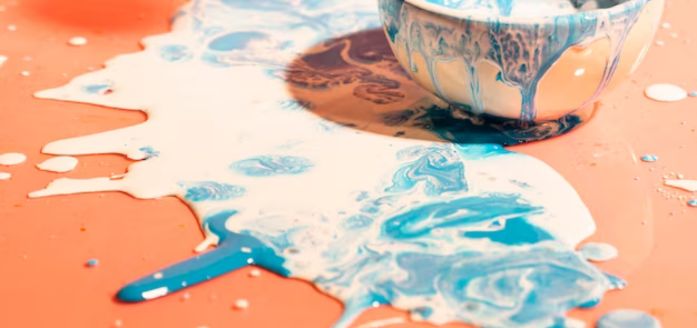
Unlocking Creativity: A Beginner's Dive into Acrylic Pouring
Are you ready to unleash your inner artist and dive into the mesmerizing world of acrylic pouring? Whether you're an experienced painter or someone completely new to the world of art, acrylic pouring offers an exciting and accessible way to create stunning, one-of-a-kind masterpieces. In this beginner's guide, we'll explore the basics of acrylic pouring and provide you with the knowledge and confidence to start your own fluid art journey.
What is Acrylic Pouring?
Acrylic pouring, also known as fluid art or pour painting, is a technique where acrylic paint is mixed with pouring medium and other additives to create a fluid mixture that can be poured onto a canvas or other surfaces. The result is a mesmerizing blend of colors and patterns that form unique abstract compositions.
Materials Needed:
1. Acrylic Paint: Choose a variety of colors to create depth and interest in your paintings.
2. Pouring Medium: This is essential for creating the right consistency for your paint to flow smoothly.
3. Canvas or Surface: Select a canvas or other surface suitable for acrylic pouring.
4. Cups and Stirring Sticks: Use these to mix your paint and pouring medium thoroughly.
5. Protective Gear: Wear gloves and aprons to protect yourself and your workspace from spills and stains.
6. Drop Cloth: Lay down a drop cloth or plastic sheet to protect your work area.
Getting Started:
1. Prepare Your Workspace: Set up your materials on a flat, level surface in a well-ventilated area.
2. Mix Your Paint: In separate cups, mix your acrylic paint with pouring medium until you achieve a smooth, fluid consistency. Experiment with different ratios to find what works best for you.
3. Choose Your Pouring Technique: There are various pouring techniques to explore, including the flip cup, swipe, and dirty pour. Each technique produces different effects, so don't be afraid to experiment and have fun.
4. Pour and Tilt: Once your paint is mixed and your canvas is prepared, pour the paint onto the canvas and tilt it in different directions to spread the paint and create interesting patterns.
5. Let It Dry: Allow your painting to dry completely before adding any finishing touches or varnish.
Tips for Success:
1. Start Small: Begin with smaller canvases or practice boards before moving on to larger projects.
2. Experiment with Colors: Don't be afraid to mix and match colors to create unique combinations.
3. Embrace Imperfections: Acrylic pouring is all about embracing the unpredictable nature of fluid art. Embrace any unexpected results as part of the creative process.
4. Practice Patience: Allow each layer of paint to dry completely before adding additional layers or finishing touches.
5. Have Fun: Most importantly, have fun and enjoy the process of creating something truly unique and beautiful.
Conclusion:
Acrylic pouring is a versatile and exciting art form that offers endless possibilities for creativity and self-expression. Whether you're a seasoned artist or a complete beginner, anyone can enjoy the process of creating stunning abstract paintings through acrylic pouring. With the right materials, techniques, and a willingness to experiment, you can unlock your inner artist and create breathtaking works of art that are uniquely yours. So grab your paint, pour your heart out, and let your creativity flow!